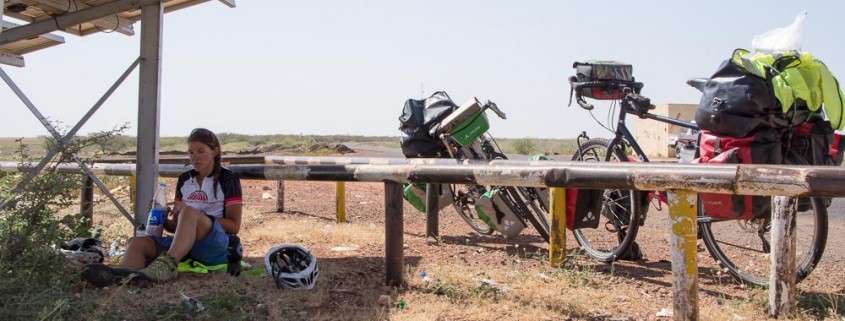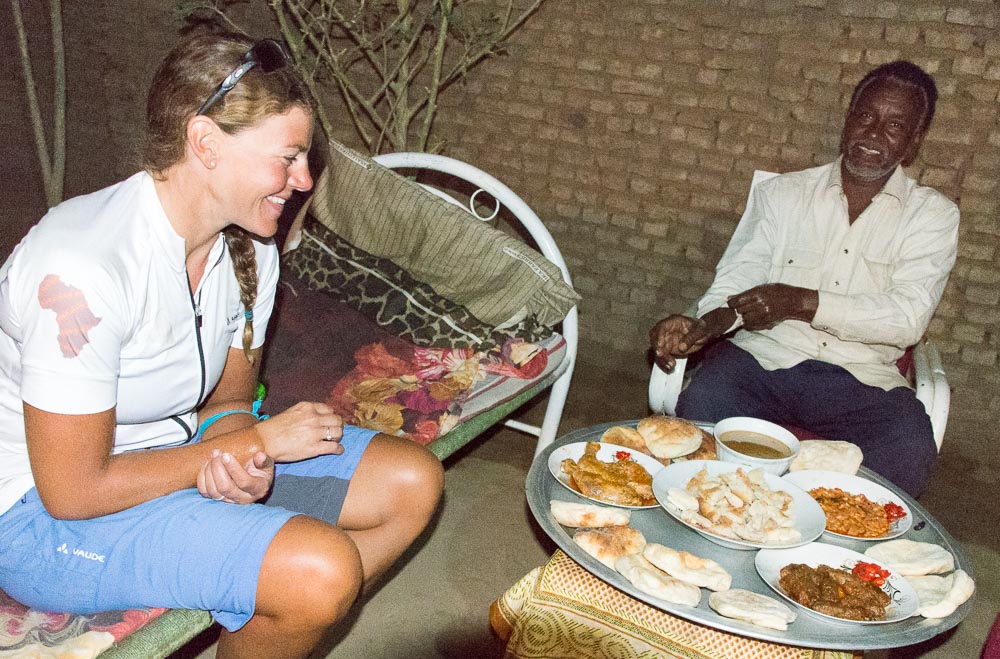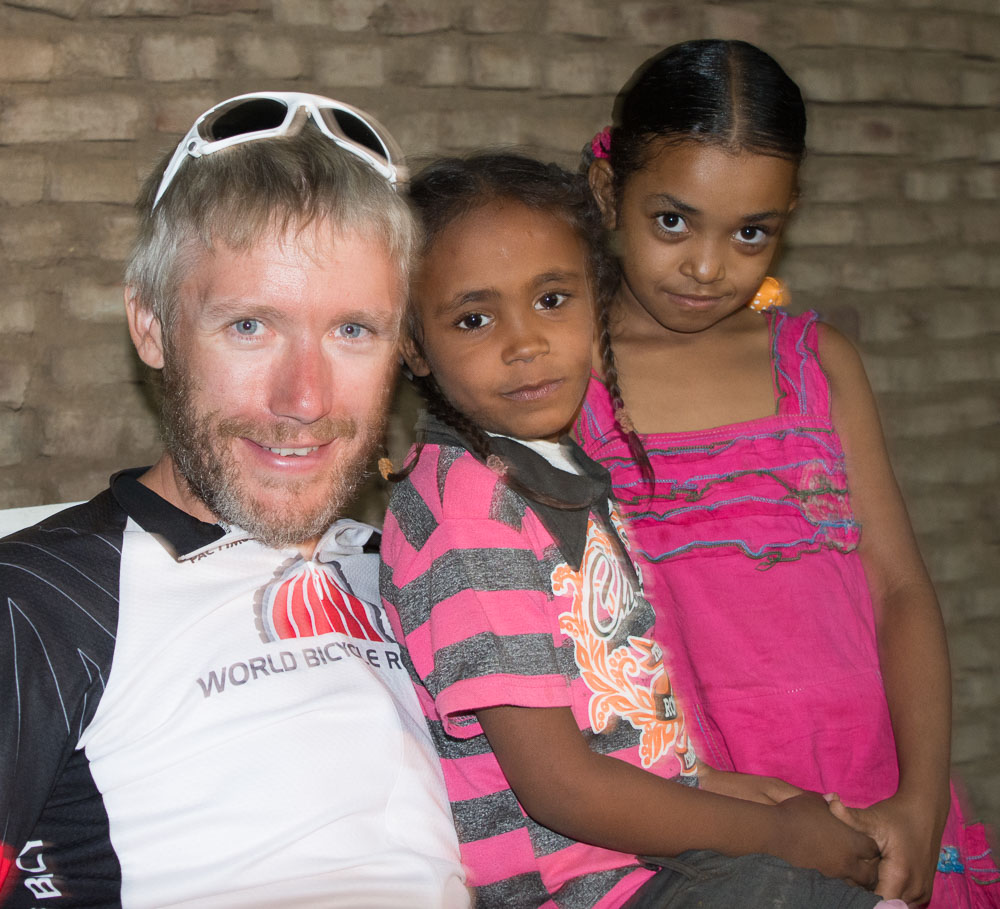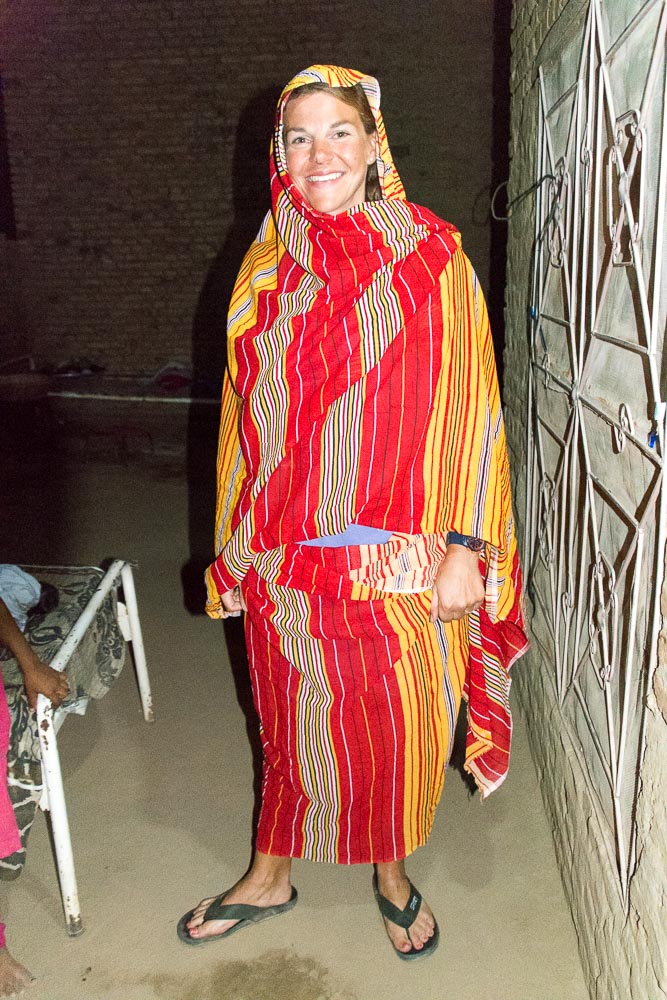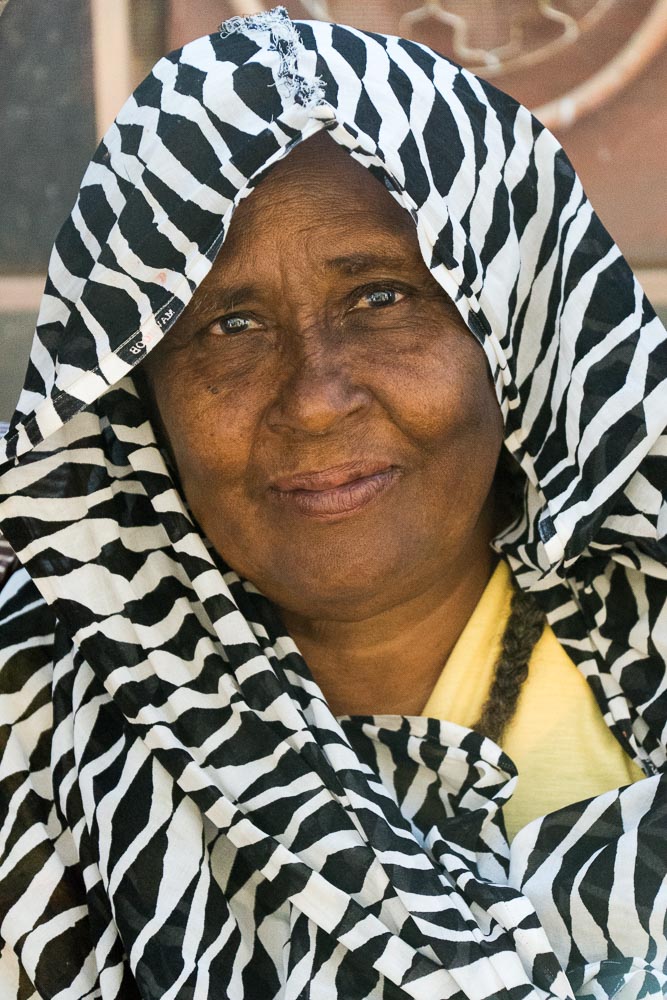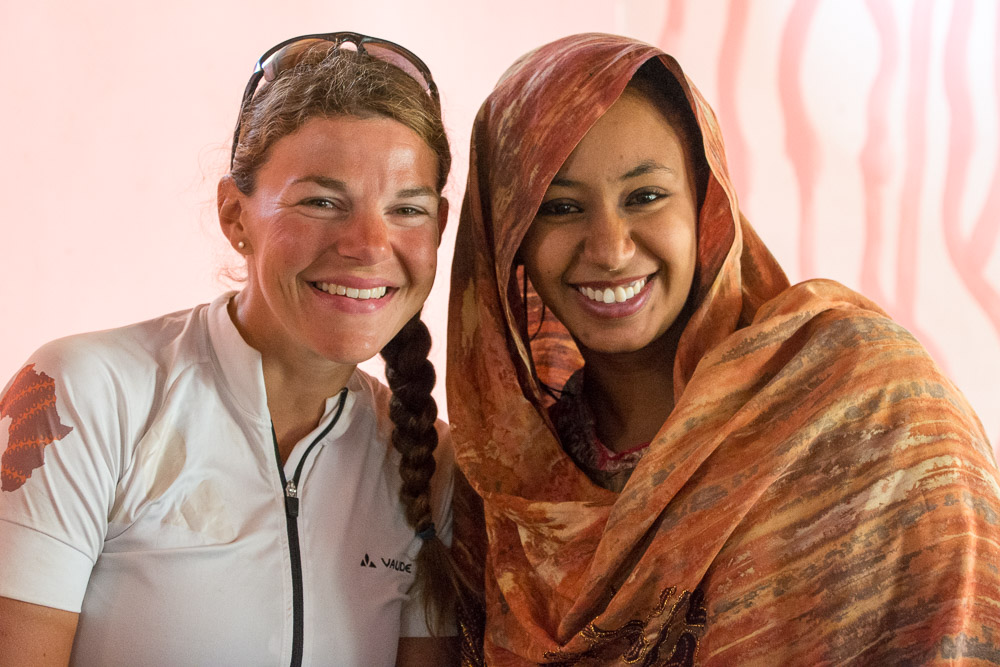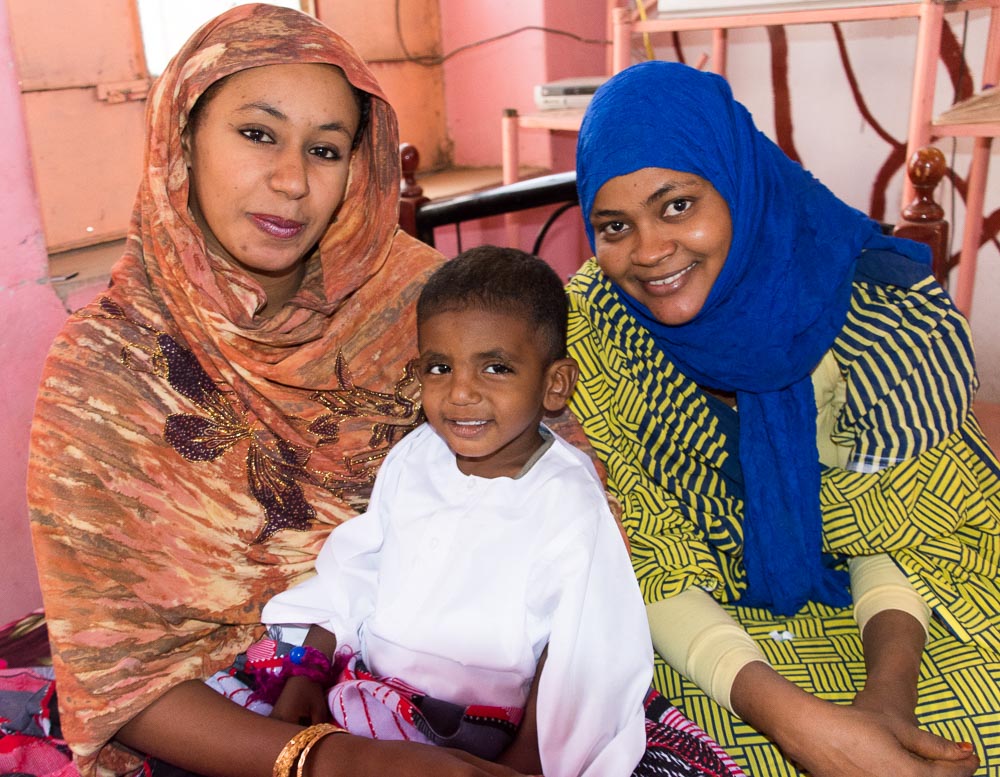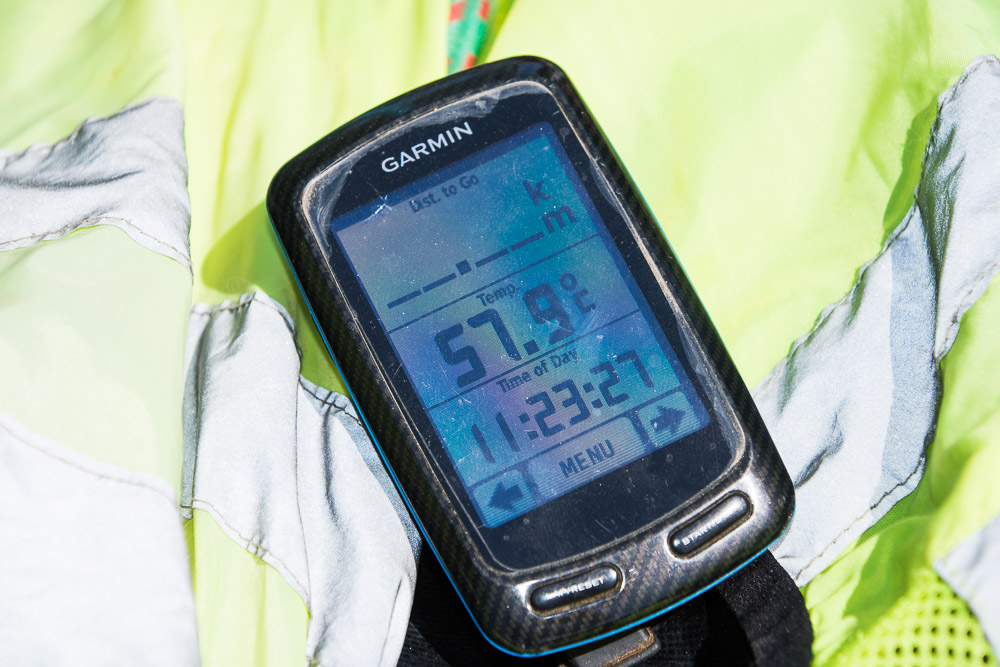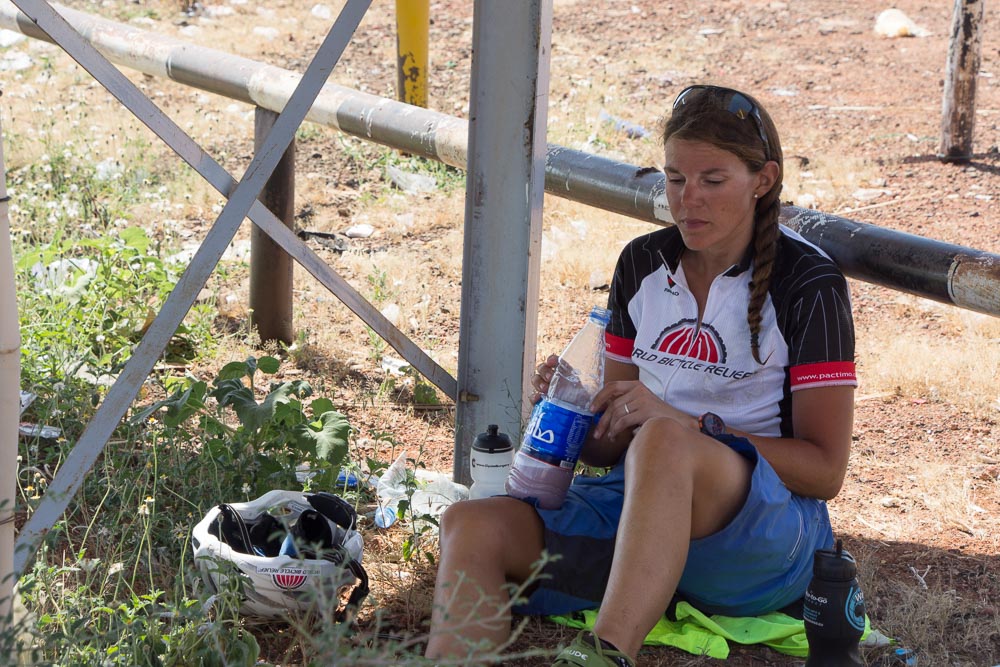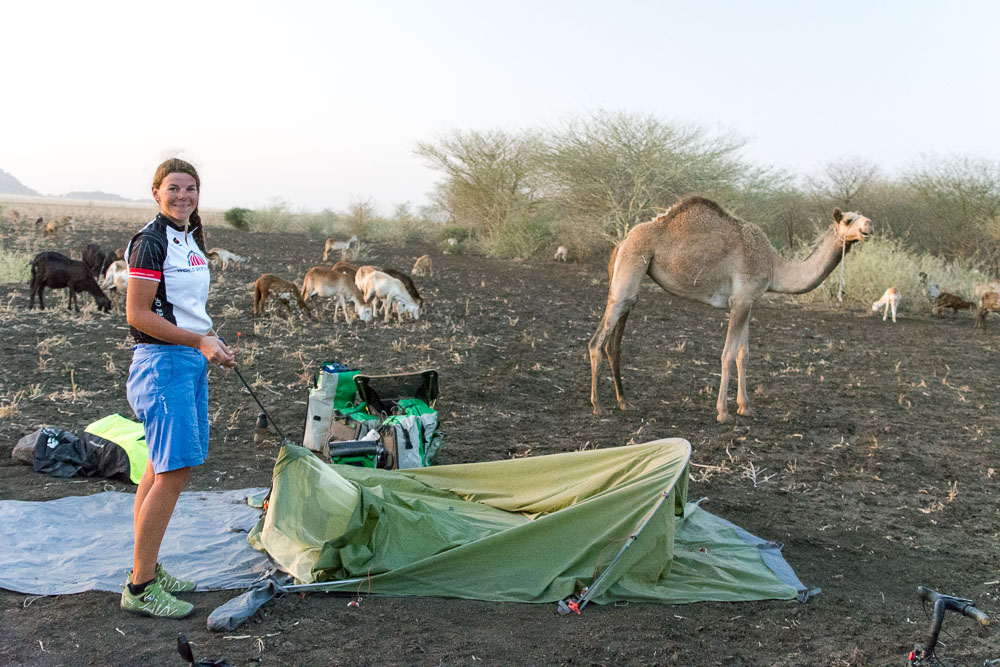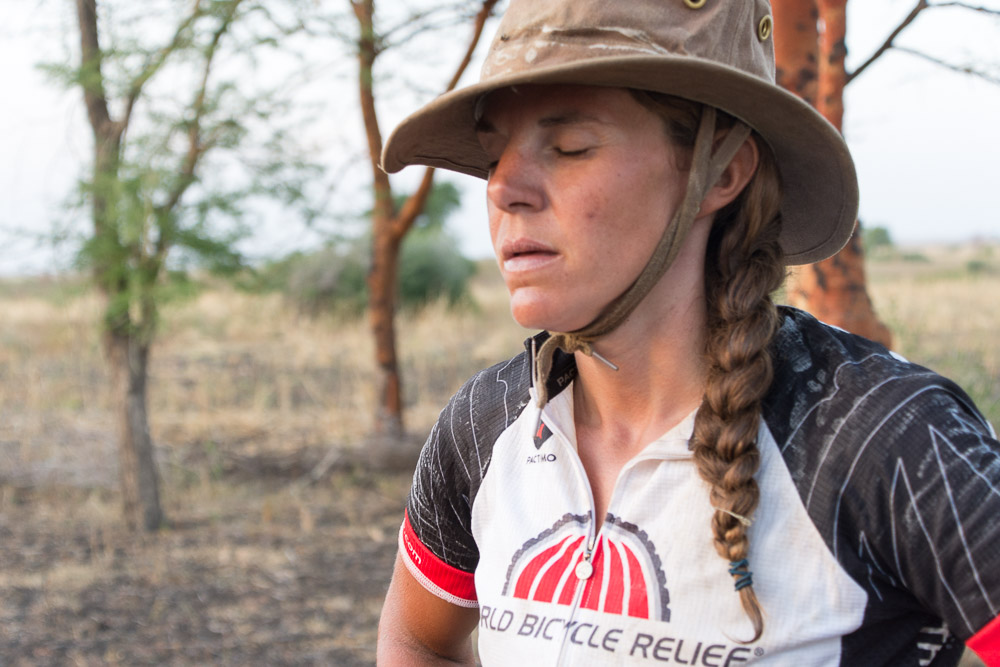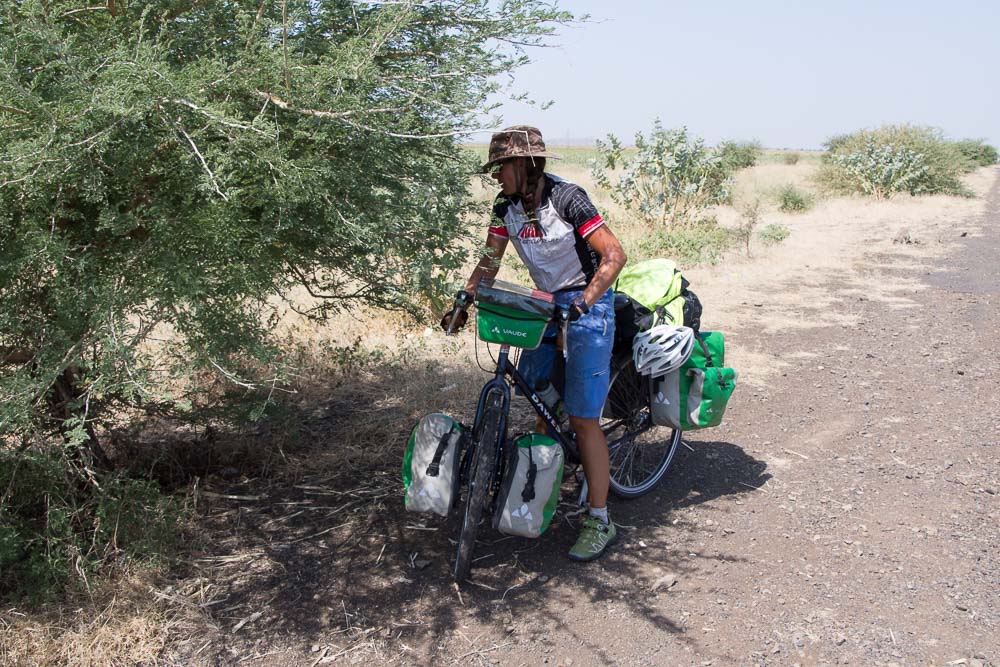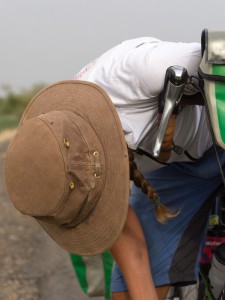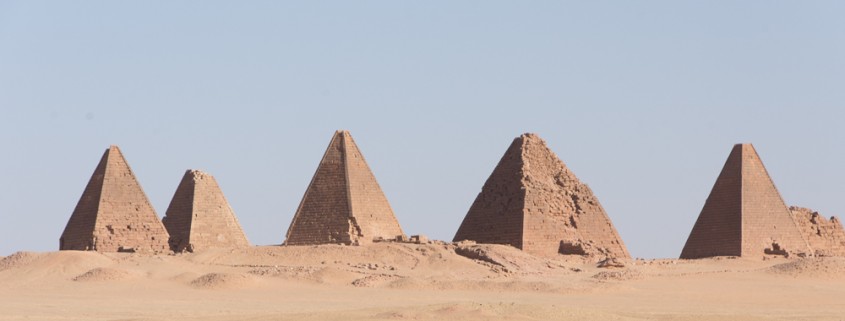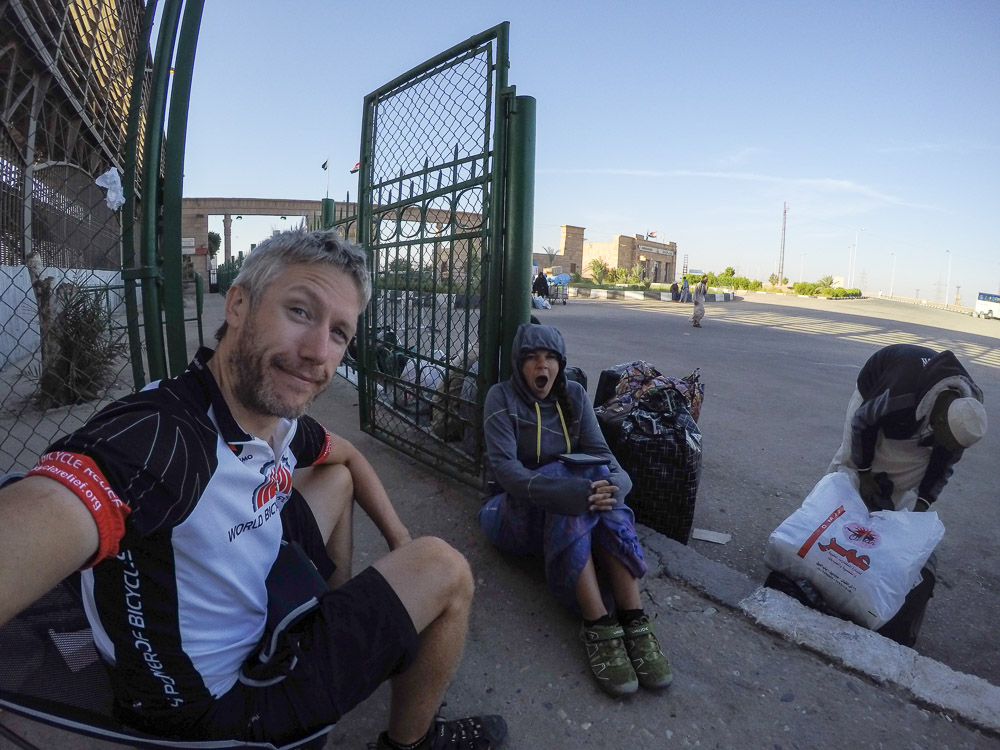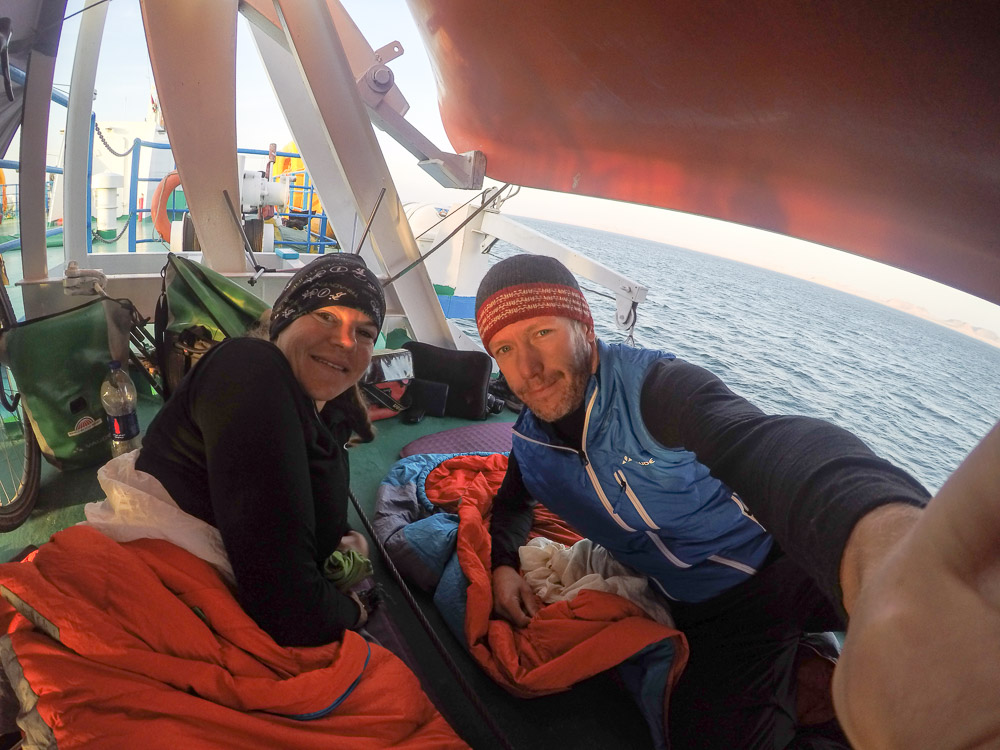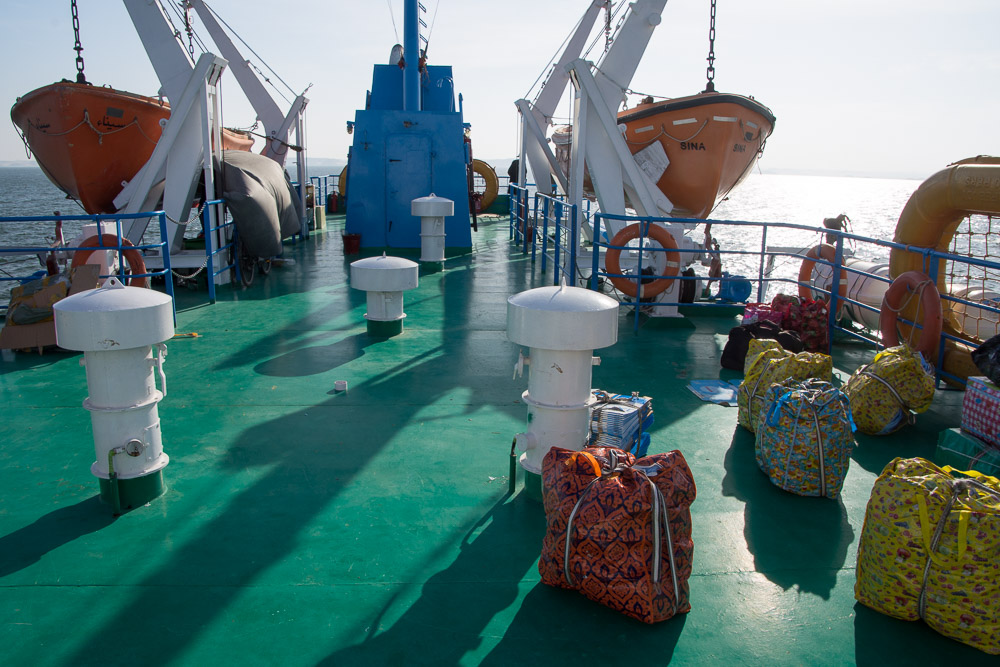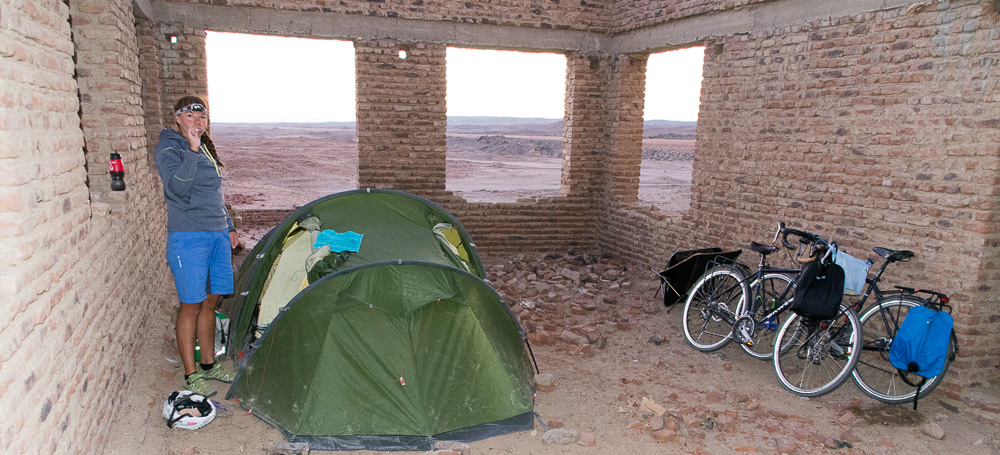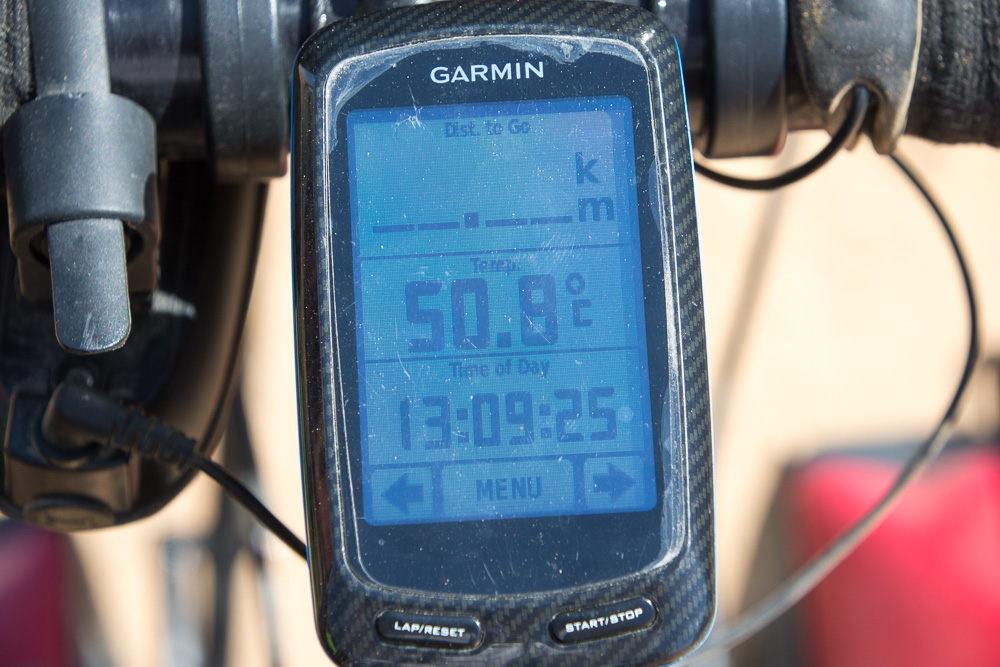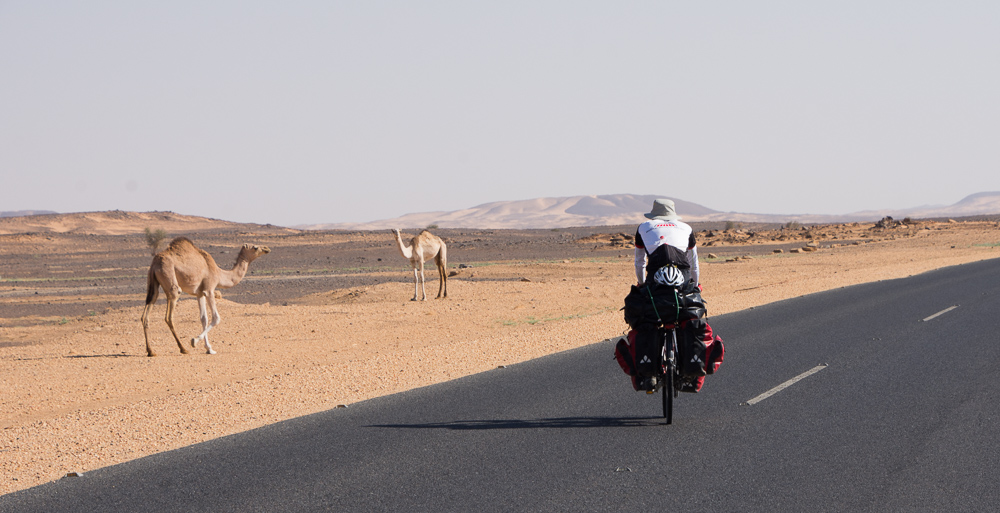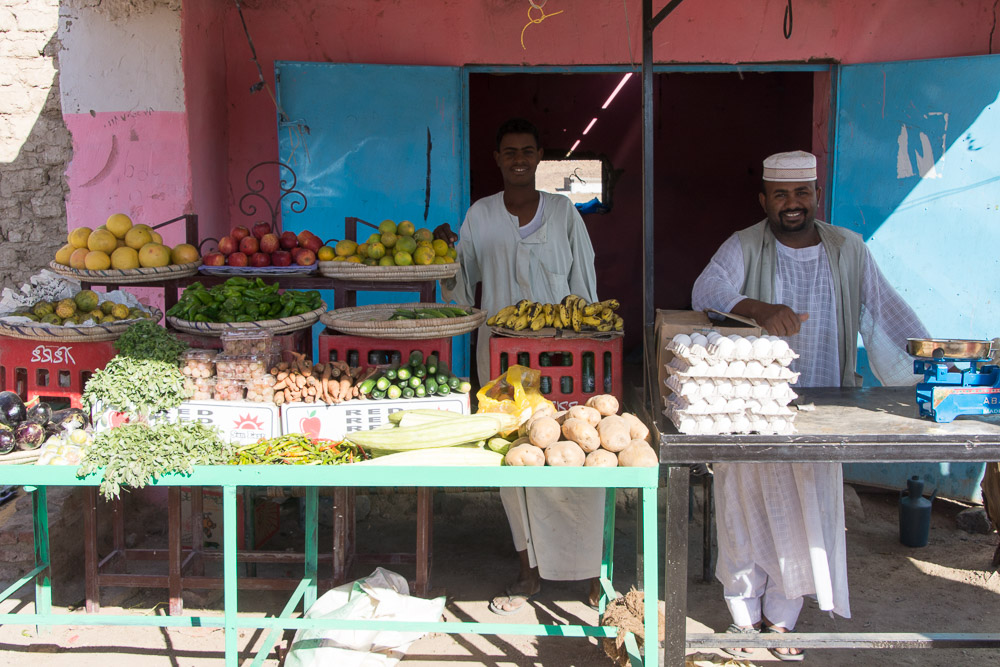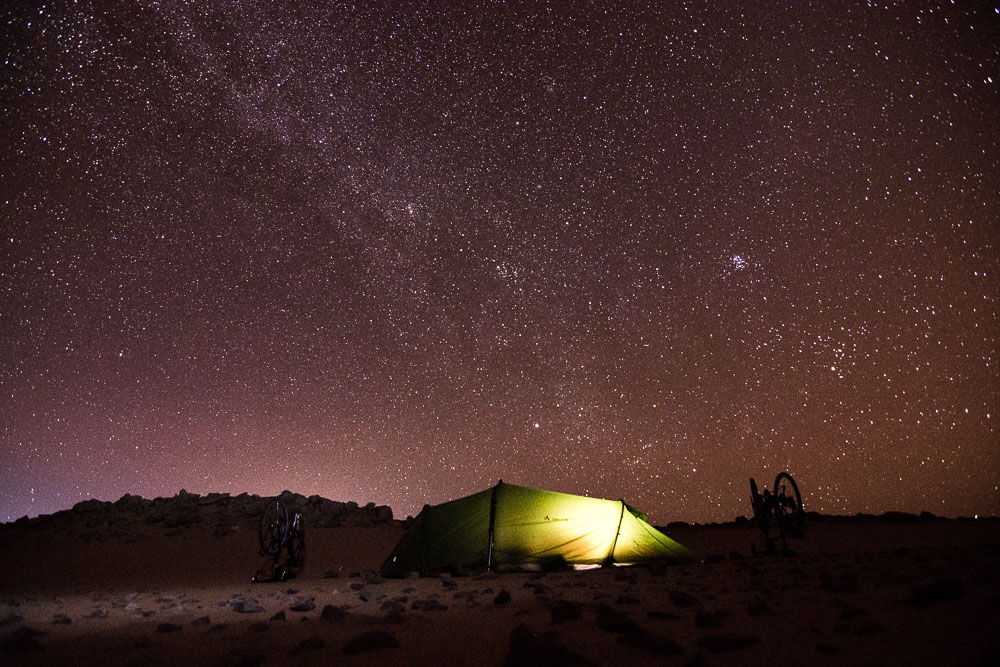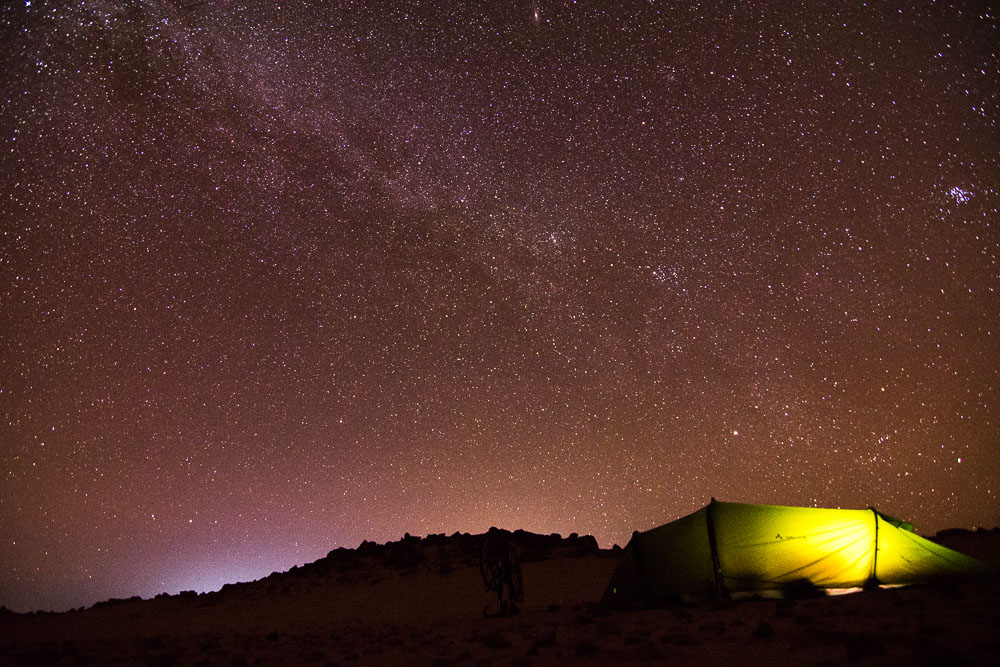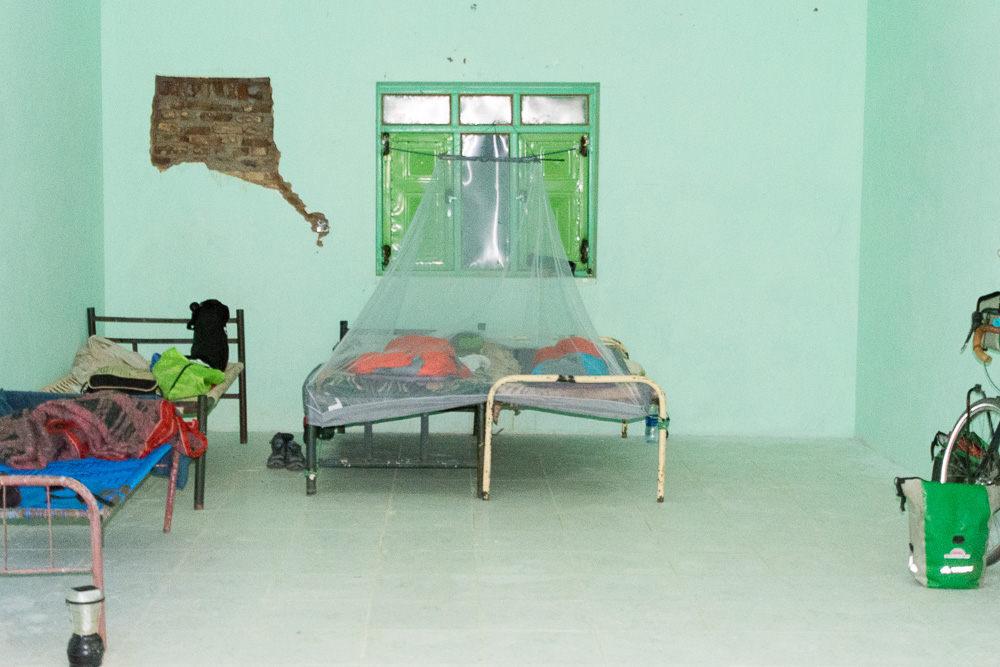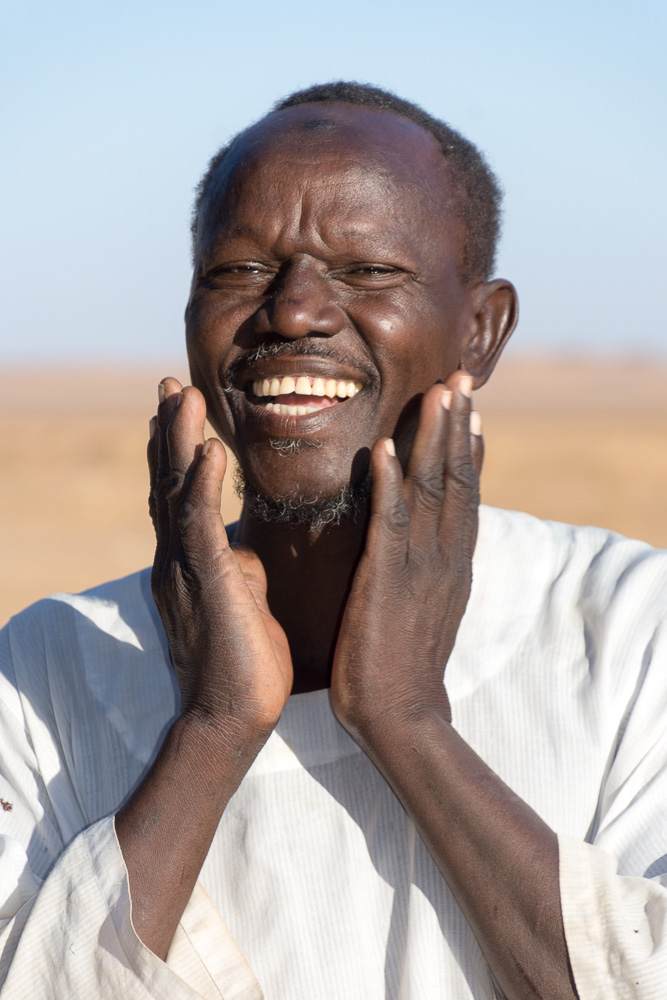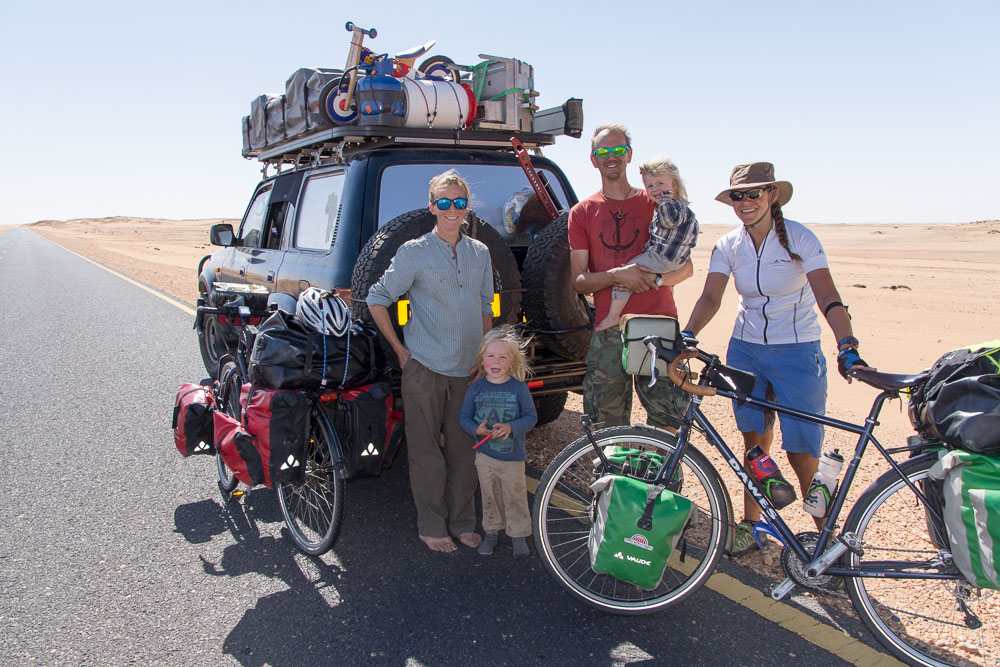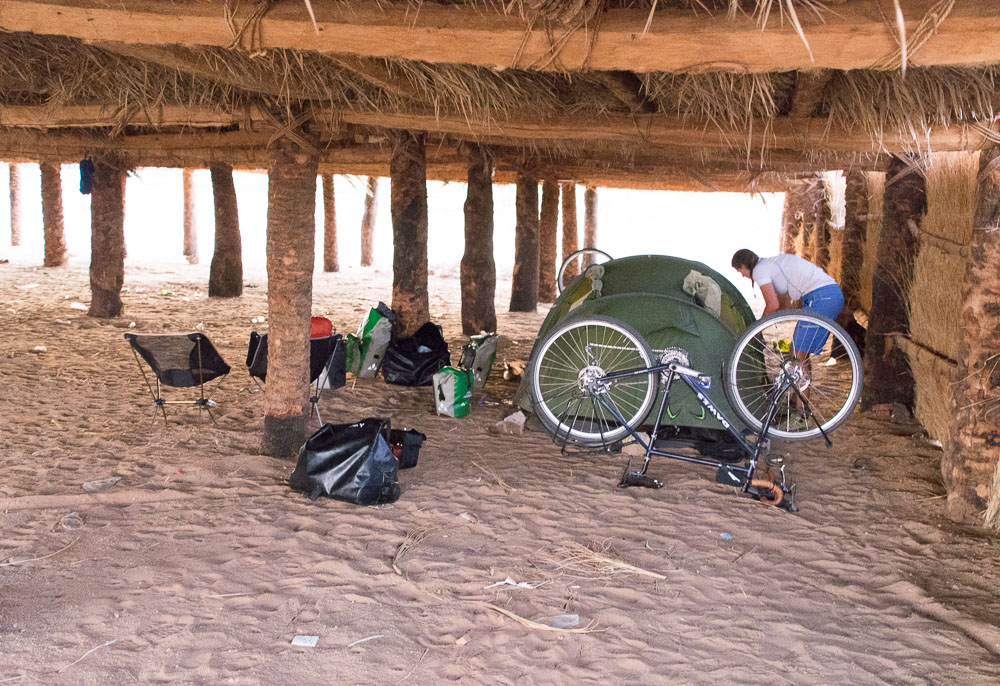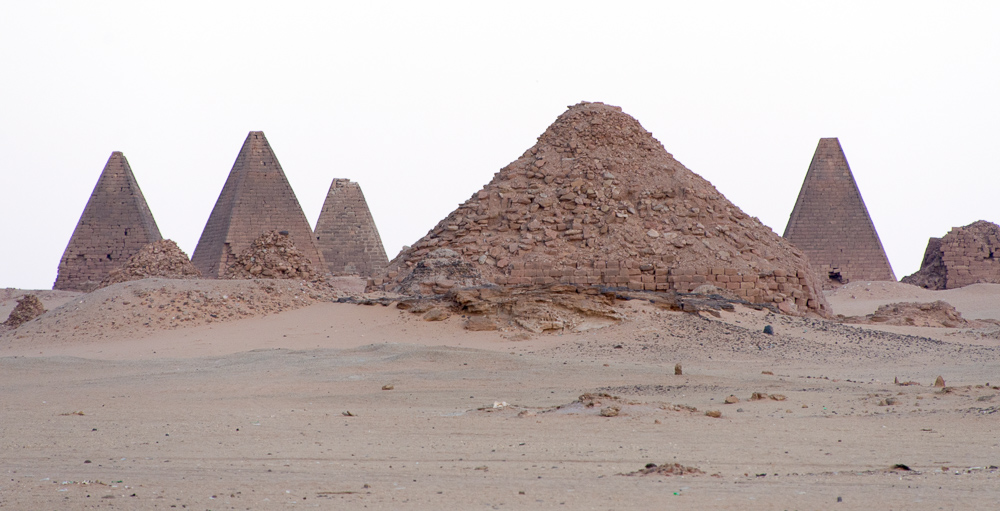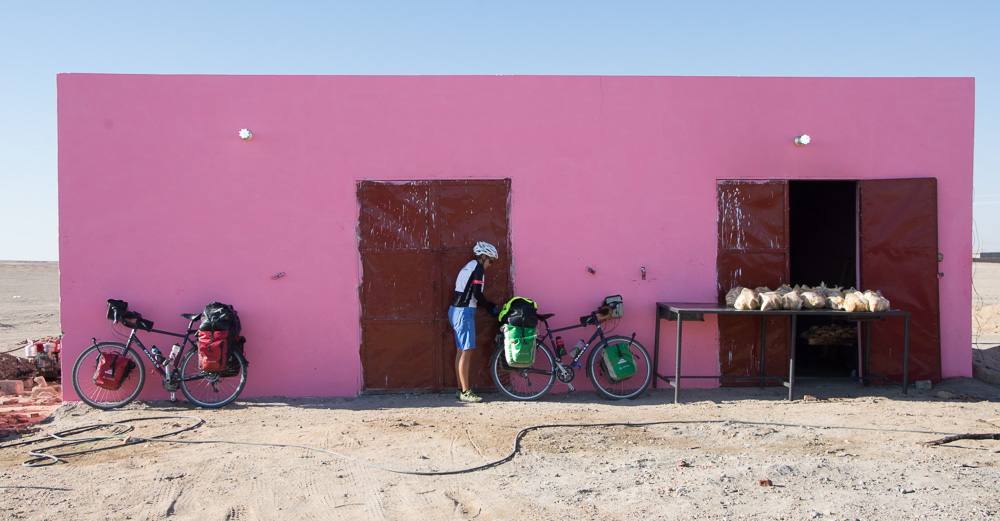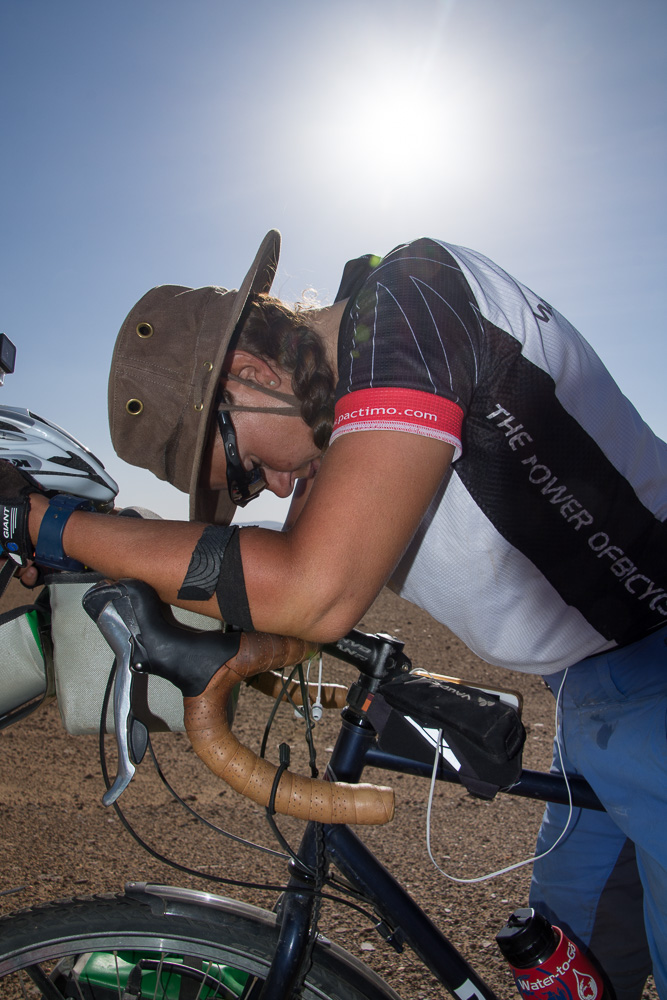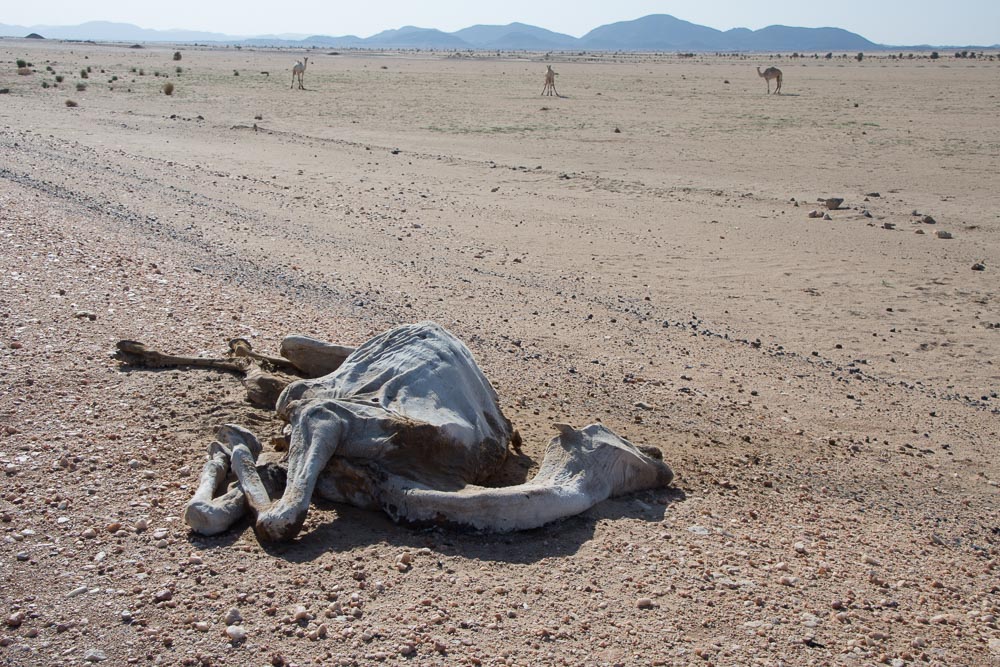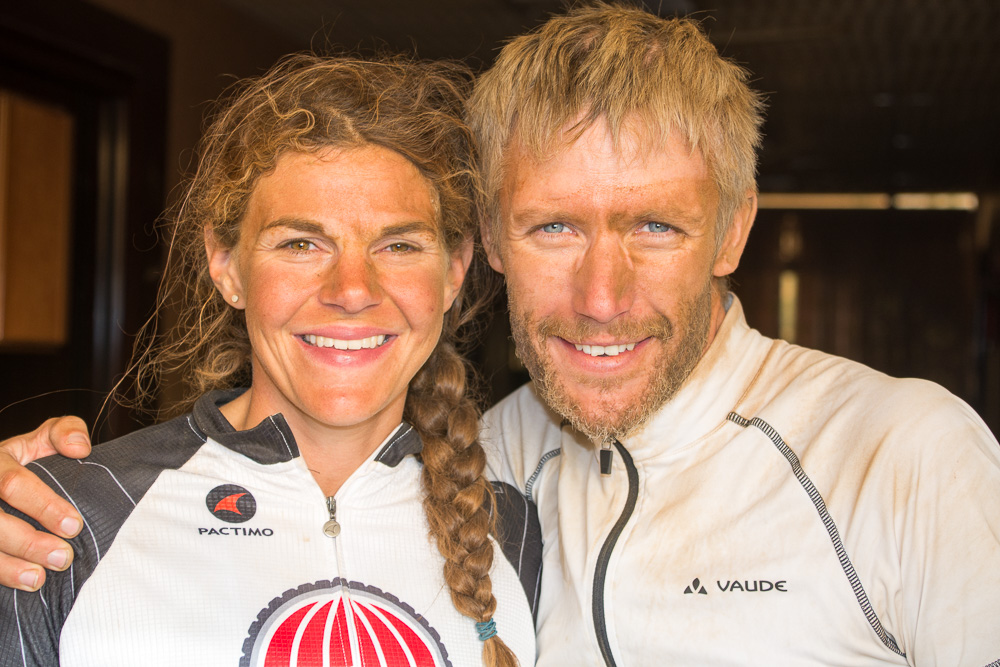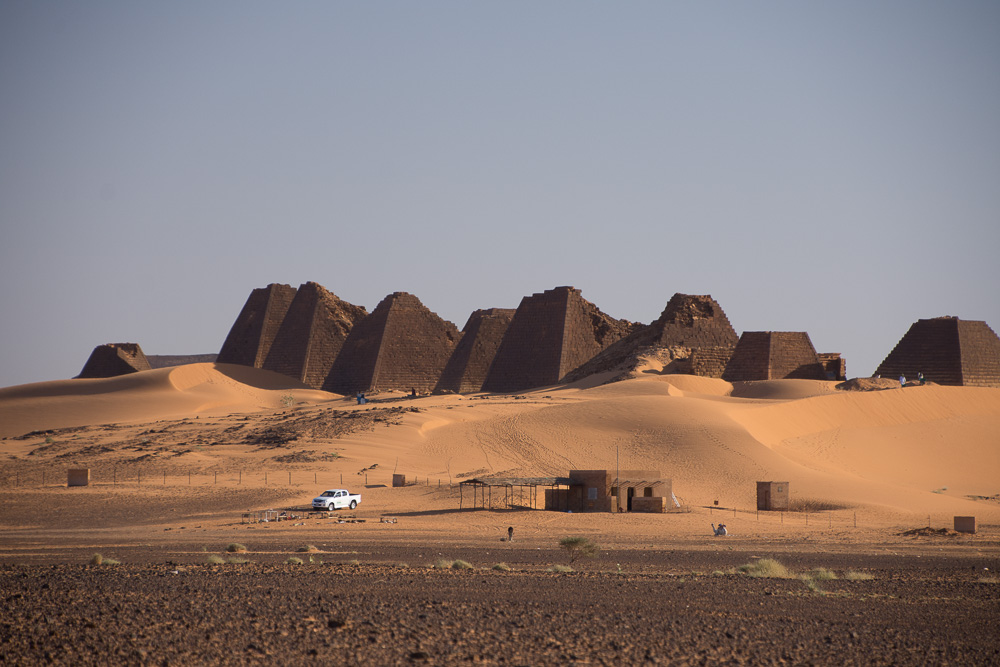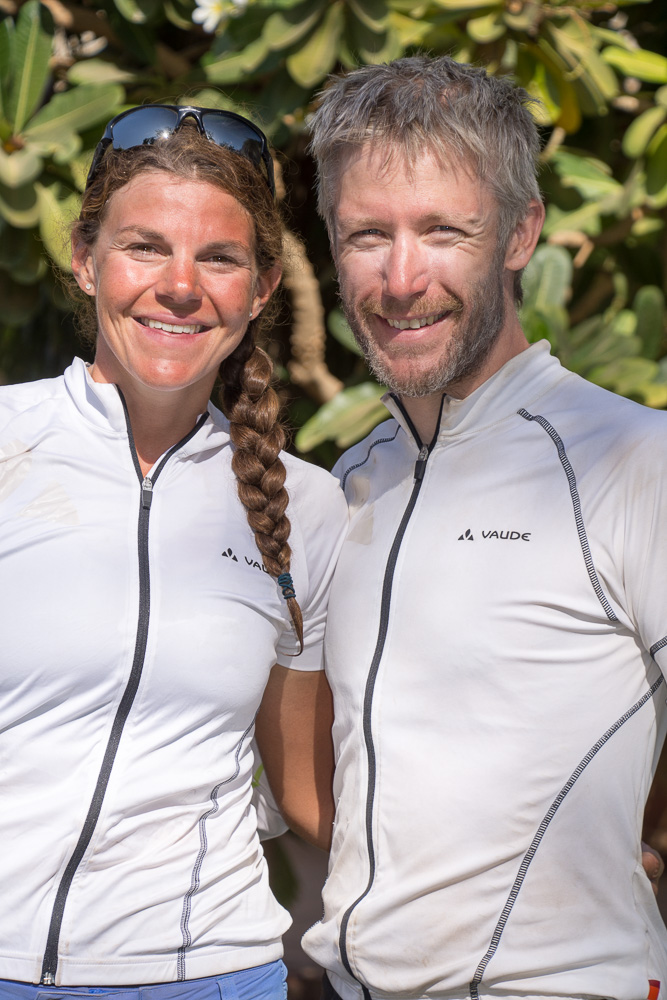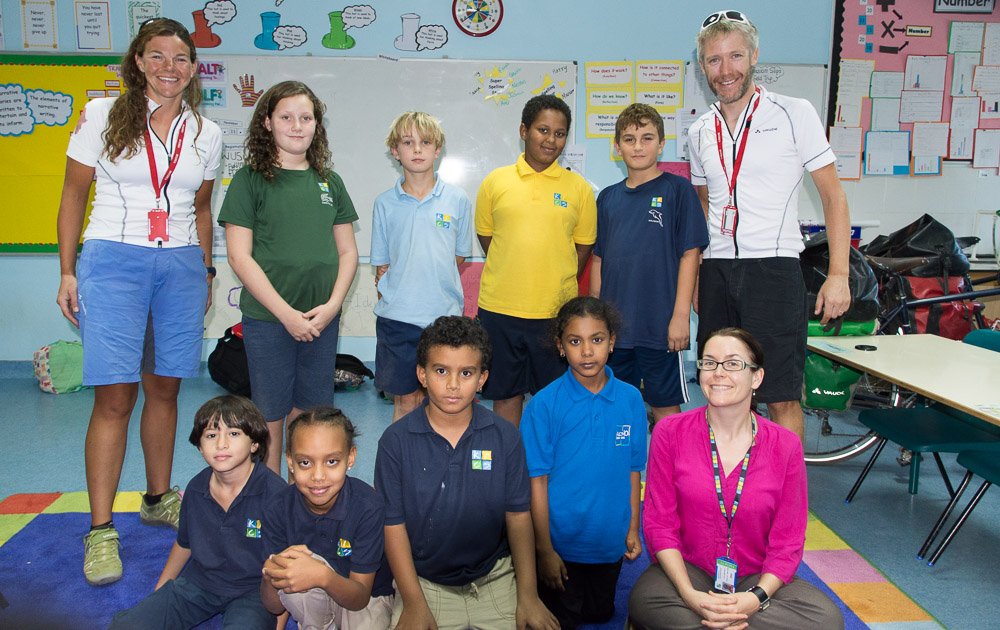Cycling from Khartoum, Sudan, to Gondar, Ethiopia
A lot has happened in the past week. Not all of it good. Our stay in Khartoum was extended after I endured two separate stomach bugs but, once rested and all systems were back up and working properly, we set off on our 5-day ride to the border with Ethiopia. The plan was to cross at the Gallbat/Metema border before heading into cooler climes and mountain air, something we were both excited but apprehensive about.
The ride out of Khartoum was quieter than we expected and, although we were cycling on a main road, we had plenty of space. Actually in Sudan the lorry drivers are incredibly patient and will wait their turn to pass you if there is oncoming traffic and most will wave and beep their horns at you. The buses however were another story – coaches whizzing across the country at an extraordinary pace pass you with far less patience and on many occasions forced us off the road.
On our first evening after leaving Khartoum, we’d stopped in a small town to pick up some vegetables and a cold drink – we have often found it hard to pay anything for vegetables in Sudan as the market vendors continue to tell us that we are their guests and refuse payment! Cycling out of town to find a spot to camp we were stopped by a man on the road, “Welcome! Welcome! Where are you going?” which is perfectly normal in Sudan however he then added, “But where will you sleep?” – so we stopped to chat and before we knew it our new friend, Ihad, had invited us to spend the evening with his family in their compound.
Both exhausted, we kindly accepted his invitation, as we were keen to learn more about daily family life in Sudan – and we were not disappointed. Ihad lives with the majority of his extended family (25 or so) in a compound just by the Blue Nile and we spent a fantastic evening meeting his children and his two sisters’ children and shared a meal with his immediate family.
By now, it was nearing 9.30pm and way past our usual bedtime so we were starting to make our excuses to get to bed when I was ushered away by his wife and sister to go and see where we were sleeping. They, however, had hatched another plan and I was whisked away into a room where they wanted to give me a “Sudanese bath”. Now, I know I was probably pretty stinky but I was not expecting what happened next. First, I was given a nightie to wear and told to hover over a scented fire and then before I knew it, they were lathering my body in a sort of body scrub which was rubbed into my arms and legs until most of my skin had fallen off. I have to be honest; I found the whole thing a little traumatising as I sat there trying to be polite, but at the same time slightly overwhelmed by my impromptu scrub! I just about managed to convince them that they shouldn’t put a bottle of olive oil in my hair, as it would run into my eyes the next day. I was then given a traditional Sudanese outfit to go and greet James before bed!
The next morning we were invited to a breakfast celebration as Ihad’s niece’s 2-year old son was getting circumcised. So, after tea and biscuits, we made our way across the town to the party.
Ihad had been to the market early to buy a lamb to feast on. Thankfully, by the time we arrived, the lamb had already been slaughtered and the circumcision had been performed – both tasks James had been willing to perform with our Swiss Army Knife.
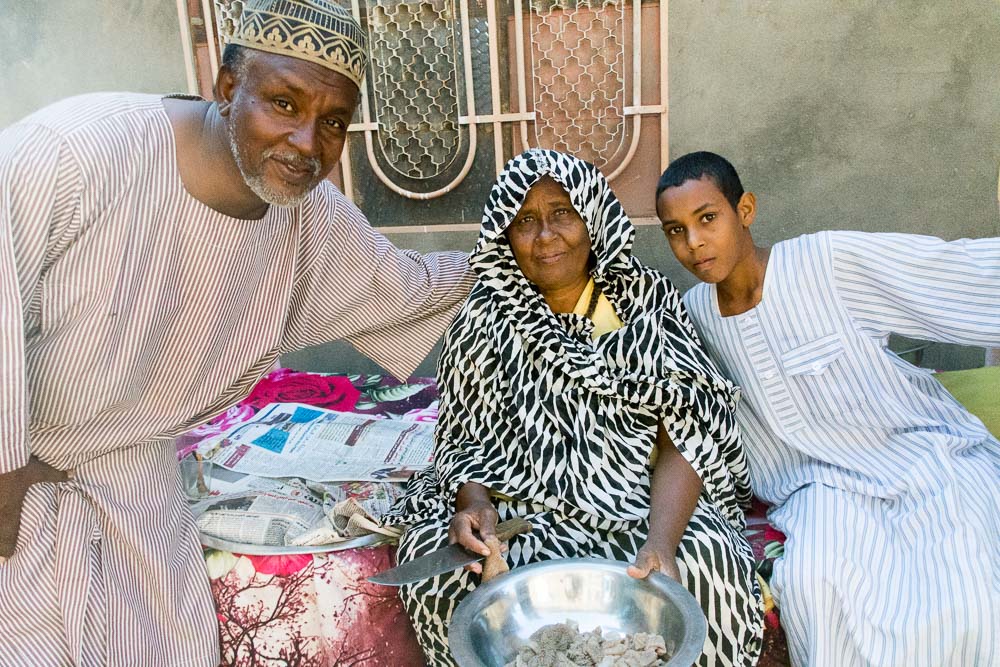
Ihad, his mother and son. Ihad’s mother was preparing the sheep’s stomach for the celebratory breakfast.
Sadly we couldn’t stay for too long as we needed to get on the road but the Sudanese hospitality was amazing and we felt very lucky to have been invited. Although we couldn’t help notice the forlorn look on the face of the poor lad who’d had the circumcision as he lay on a bed recuperating quietly whilst his extended family celebrated around him.
Back on the road, we made our way to the border where we were due to arrive on Monday afternoon – 3 days ride away and around 340km. The landscape was beginning to change. It’s harvest time in Sudan and the farmers were busy in the fields and as we passed through smaller villages we started to notice a change in the people too with lots more shouting from the sidelines! The conditions were tough – a fierce cross wind had rejoined us and the temperatures were soaring once more; our Garmin actually hit 58 Celsius at one point but nothing we were not used too.
But then something changed. At the end of the next day I started to feel ‘not quite right’. We put it down to dehydration and stopped a little early for the day to rest up and drink lots of delicious warm filtered water! For the next two days, things didn’t improve; I was managing around 30 minutes of cycling at a time before having to stop to sit down off my bike, it was like someone had turned off the generator, there was nothing left. We took the decision to have much shorter days, stopping for water and Cokes whenever we could and it was a matter of taking things one step at a time.
Just to add to the fun, I left my wallet behind in a small town where we had stopped for a few hours so that I could rest which left us in quite a tricky situation. We returned 20 minutes later but it had gone. We were still a couple of days from the border and faced with the prospect of no money for food and most importantly, in the state I was in, for sugary drinks. An exceptionally kind man came to ask us what he could do to help us although short of getting the wallet back, there was not much that he could do.
Panic set in – not because of the contents of the wallet as we have always been careful to only keep one credit card in there and limited cash – but due to the lack to cash and the seemingly never ending road to the border ahead.
What followed was unexpected and quite amazing – the kind man turned to the dozens of people crowding round us and organised a whip-round asking people to spare some money for us. He apologised on behalf of his people and handed us around 70 Sudanese Pounds (around £7) – which was more than enough to buy enough bread, vegetables and eggs to keep us going! We have been touched by the extraordinary generosity of the people here and will be forever grateful for his help.
Another day had passed and progress continued to be slow. After another extremely hard day, we camped around 25km from the border to Ethiopia, which we made the next day by around 11am after an early start.
An incredibly hard decision needed to be made. We could continue to cycle, knowing full well that the mountains were right in front of us, knowing that we were not going to pass through any decent towns until the city of Gondar, 180km across the border, or we could take a bus.
We both agreed before we left home that we were not going to take a bus unless it was an emergency, our bikes were broken, the road was completely impassable, security risks or for health reasons. And I’ve never been one to quit – no matter tough it is – we set out to cycle to Cape Town and raise money and awareness for an incredible cause and did not want to have to stop. However, I just did not have anything left in my body whatsoever. Every time I tried to cycle I thought I was going to fall off my bike and I have lost count of the tears I have shed in the process and so, regretfully, once we were over the border into Ethiopia, we took a bus to Gondar where we are now resting up in a little hotel (L-shaped hotel) which has warm water and a bed. I’ve no doubt all will be right as rain within a couple of days once I have rehydrated and I’ve managed to eat some more and we can continue our adventure in the Ethiopian Highlands.
One thing is for sure; I could not have got through the past few days without James and his tireless support, words of encouragement, patience and love. I feel bloody awful that I have forced us onto a bus, but I know that it was for the best and now it is all about a focus on recovery and regrouping.
Getting a bus: James’s perspective.
When we set off for London on 12th July, the aim was to cycle all the way from London to Cape Town as ‘purely’ as possible. By pure, I mean that we would only be forced off our bikes if absolutely necessary.
Yesterday we got a bus. And I want to explain why we did so.
Sudan has been relentless. Sure it’s been flat. But the lack of gradient only goes some way to make up for how tough it’s been.
Imagine cycling the equivalent of Land’s End to John O’Groats through barren desert with only 4 towns of any significance en route, no shade, very limited water resources and battling against ferocious winds that whipped up sand that stung the skin. We arrived in Khartoum shadows of our former fighting-fit selves.
Add stomach bugs to the mix. I was able to get over mine by the time we reached Khartoum but, throughout the stay in Khartoum, Emily was unable to rest and rehydrate as she would have liked.
We extended our time in Khartoum but the following days were the toughest we’d experienced. Emily wasn’t in a great place so progress was slow and we dramatically reduced our daily distances. Where before we were cycling 120km per day we were now barely managing 60km. Emily had to stop every 2km or so and cower under thorn bushes for shade and retched at the roadside.
Emily is not a quitter. A GB (age group) triathlete and Ironman competitor, her fitness is not an issue. She’s also been whacked by a few lacrosse balls in her time so knows what real pain is.
One of our stated objectives before we set out was to ensure the expedition was safe. The remote Sudanese plain is not the place to get ill. It was 500km back to Khartoum or 200km ahead to Gondar. Staying put was not an option. Firstly, we were far from medical help. Secondly, even resting in a stifling tent, which in itself can be hotter than outside, was not an option.
Taking the decision to get a bus was painful. But not as painful as seeing Emily suffer and deteriorate visibly without showing any signs of recovering.
Taking the bus meant we missed a 197.5 km section of sealed road which had an ascent of 3,452 meters and descent of 1,947 meters. We’ll be sure to make this up when we get back on the road, hopefully in a few days’ time.

